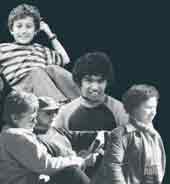This article is part of the series:
 Politics and government of
Politics and government of New Zealand
New ZealandThe Leader of the Opposition in New Zealand is the politician who, at least in theory, commands the support of the non-government bloc of members in the New Zealand Parliament.
The current Leader of the Opposition is John Key, Leader of the National Party.
Constitution
Executive
Sovereign
- Queen Elizabeth II
Governor-General
- Hon. Anand Satyanand
Executive Council
- Cabinet
- Prime Minister
- Rt Hon. Helen Clark
Legislative
Parliament
- House of Representatives
- Speaker of the House
- Margaret Wilson
Official Opposition
- Leader of the Opposition
- John Key
Elections
- Electoral system
Electorates
Referendums
Judiciary
Supreme Court
- Chief Justice
- Dame Sian Elias
Court of Appeal
High Court
Regional authorities
Territorial authorities
Unitary authority
Politicians
Political parties
Political topics
Māori politics
Foreign relations History
The office of Leader of the Opposition's in New Zealand developed gradually, and for much of the country's early history, the role was not a formal one. For most of the 19th Century, there was rarely any one person who could be considered Leader of the Opposition — those figures who took leading roles in opposing the government of the day were merely "first among equals", and had no formal office. It was only when the Liberal Party was formed that any unified leadership appeared in Parliament, and the role of Leader of the Opposition is generally traced from this point. John Ballance, leader of the Liberals (and later Premier) is usually considered the first Leader of the Opposition in the modern sense.
When Ballance led the Liberals into government in 1891, they faced no formal opposition in a party sense, though certain MPs were styled Leader of the Opposition. However, their opponents gradually coalesced around a leader, William Massey, who became Opposition leader in 1903, and in 1909 became the first leader of the new Reform Party. After this, the Leader of the Opposition would always be the parliamentary leader of the largest party in the House of Representatives that had not undertaken to support the Government of the day.
During the 1910s and 1920s, the role of Opposition alternated between the Liberal and Reform parties. However, the rise of the Labour Party in the 1920s, together with a gradual weakening in support for the Liberals, led to a three-party situation by the mid 1920s, with the Labour and Liberal parties having a similar number of seats. After the 1925 Election there was no official Leader of the Opposition until Rex Mason of Labour won the seat of Eden in the by-election held on 15 April 1926.
The 1928 General Election put United (formerly the Liberals) in government for the last time. Reform then became the Opposition, however in 1931 Reform entered into coalition with the Liberals, and Labour then became the Opposition, despite being the third party. The unity of the Coalition, culminating in the formation of the National Party in 1936, created a stable two-party system, with National and Labour alternating between Government and Opposition for much of the remainder of the century.
With the introduction of the MMP voting system, first used in 1996, the nature of opposition has changed. Now, though the leader of the largest non-Government party still becomes the Leader of the Opposition, there will usually be several parties who are "in opposition". An example of this arose after the 2002 elections, when the National Party gained only 27 seats, less than half the 58 seats held by opposition parties. This prompted calls from a number of parties, notably New Zealand First and the Greens, for the abolition or reform of the post. It was argued by these parties that the position had become an "anachronism" in the modern multi-party environment, and that the days of a united opposition bloc were gone. However, with the resurrection of the National Party in the recent 2005 general election, a more traditional relationship between Government and Opposition has been restored.
The current Leader of the Opposition is John Key.
- Dame Sian Elias
- Chief Justice
- Electoral system
- John Key
- Leader of the Opposition
- Margaret Wilson
- Speaker of the House
- House of Representatives
- Rt Hon. Helen Clark
- Prime Minister
- Cabinet
- Hon. Anand Satyanand
No comments:
Post a Comment